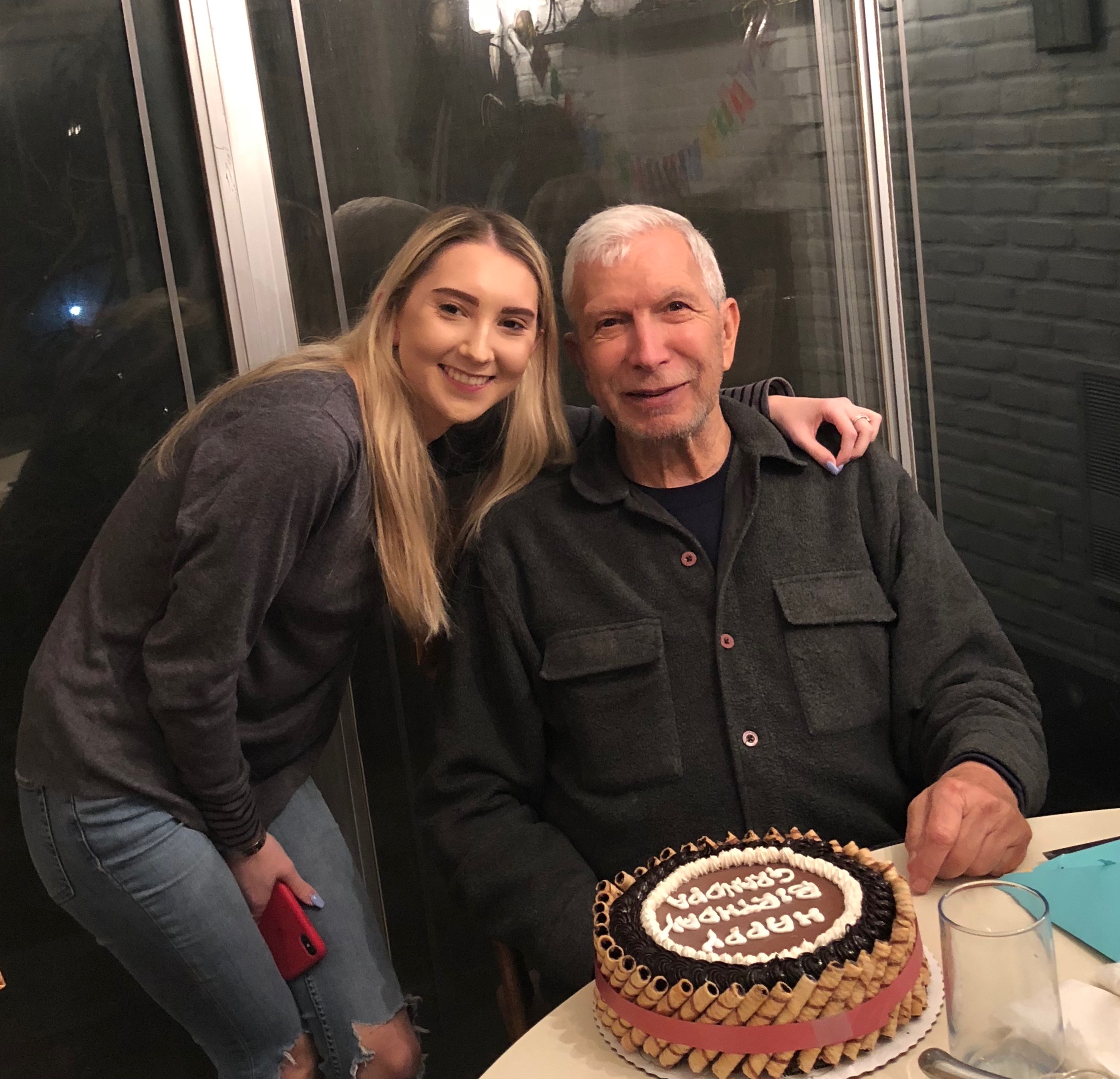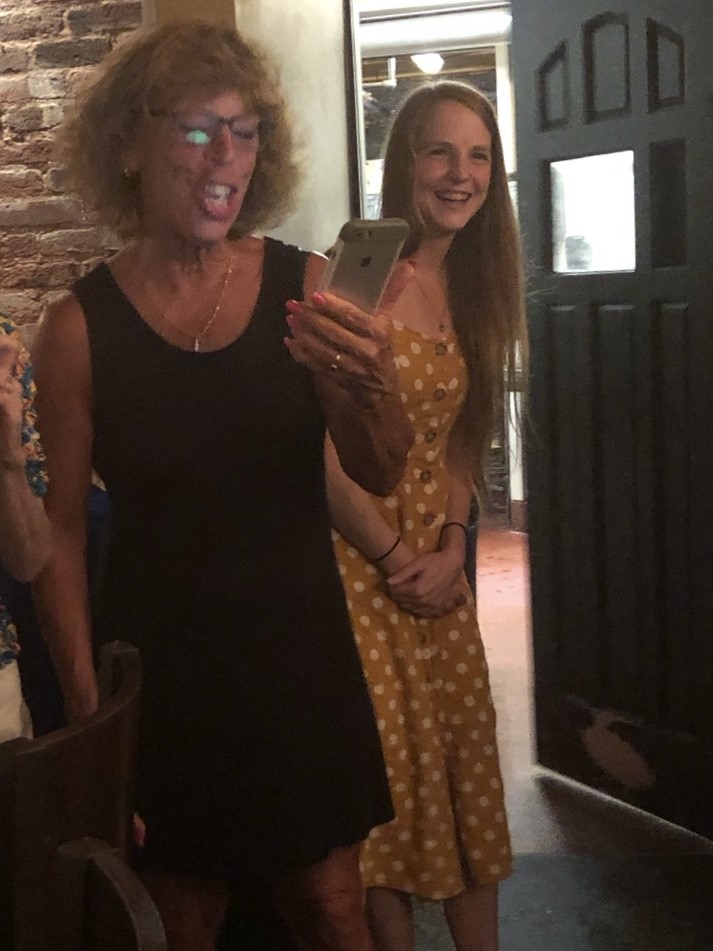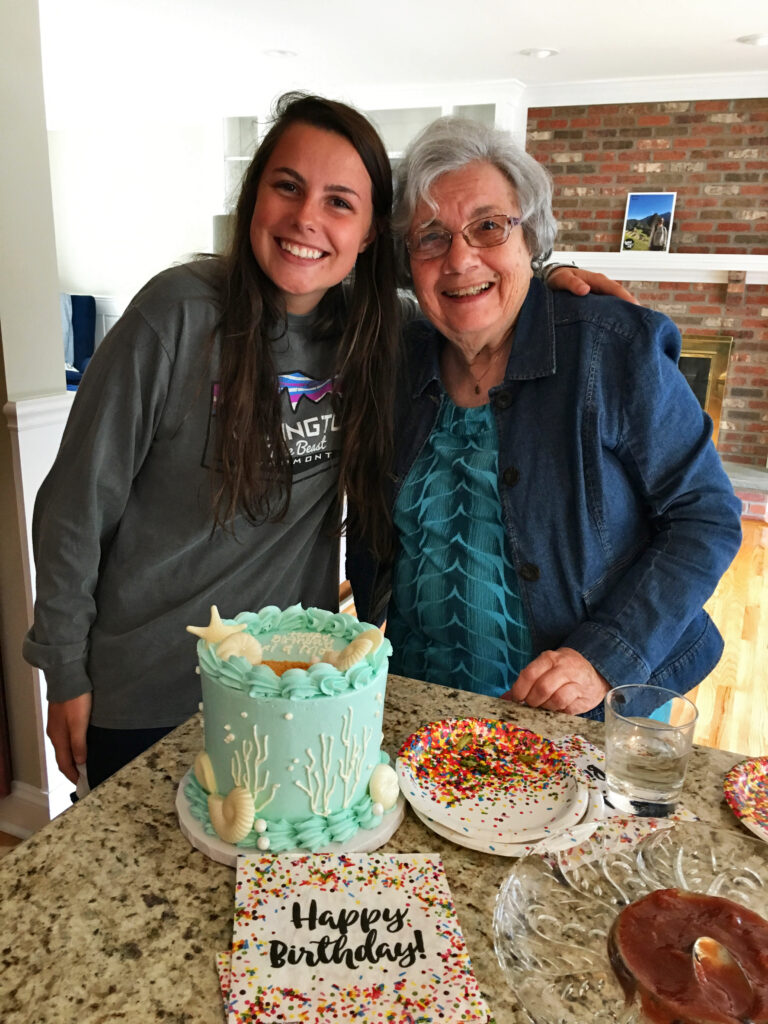Three 20-Somethings Try to Understand the Older Generation’s Response to Coronavirus
By Donna B. Fedus with reports from Lindsay Ross, Rebecca George, and Lexie Evon
Just stay home, already! People seem exasperated with their older relatives who have trouble staying home to avoid coronavirus exposure. The common belief is that older adults either don’t get it, or don’t appreciate all the social distancing being done to keep them safe.
Assuming this is true, why would so many older people ignore sensible social distancing guidance put in place to protect them, and disregard well-meaning requests from their children?
As a gerontologist educator, I say maybe we should ask them.
Seeking Intergenerational Understanding
In order to better understand older adults’ response to coronavirus, I worked with three 20-somethings, my former intern/recent college graduate, as well as my 2 current college interns. Lindsay, Rebecca and Lexie all studied gerontology, the study of aging, and each of them has an interest in working with older adults in their career.
- Lindsay, age 23, graduated from Quinnipiac University in 2019 with a major in gerontology. She spoke with Carl, her 85-year-old grandfather.
- Rebecca is a 26-year-old senior at Central Connecticut State University majoring in sociology with a concentration in gerontology. She spoke with her 69-year-old co-worker named Denise.
- Lexie is a 21-year-old senior double-majoring in communications and gerontology at Quinnipiac University. She spoke about her grandmother Arlene, who is 85 years old, has dementia, and lives at The Village at Mariner’s Point, an assisted living community in East Haven, Connecticut.
Why Perspective Matters
Even with their higher-than-average understanding of older people, these 20-somethings learned valuable lessons.
They each reported feeling more connected to their older relatives and friends. They gained empathy and insight into what drives their elders’ choices. Lessons learned can be extended beyond their own families to future colleagues, clients, residents and patients they will meet in their careers…who could be your relatives or friends.

Lindsay was taking social distancing more seriously than her grandfather Carl. “I was confused about why he was being stubborn when he’s in the age range most susceptible to getting COVID-19.” After talking with her grandfather, Lindsay better understands his choices. “Now I think it’s easier for me to stay home than it is for my 85-year-old grandfather.”Lindsay never experienced a catastrophe like coronavirus. By contrast, her grandfather told her he was born in the middle of the Great Depression, lived through World War II, the Korean War, and Vietnam War. He was alive during the stock market crash of 2008, the SARS pandemic, and the 9/11 attacks. He was born at a time when vaccines were virtually unavailable.
Lindsay was taking social distancing more seriously than her grandfather Carl. “I was confused about why he was being stubborn when he’s in the age range most susceptible to getting COVID-19.” After talking with her grandfather, Lindsay better understands his choices. “Now I think it’s easier for me to stay home than it is for my 85-year-old grandfather.”Lindsay never experienced a catastrophe like coronavirus. By contrast, her grandfather told her he was born in the middle of the Great Depression, lived through World War II, the Korean War, and Vietnam War. He was alive during the stock market crash of 2008, the SARS pandemic, and the 9/11 attacks. He was born at a time when vaccines were virtually unavailable.
Growing up, he took any health problem seriously because there was very little protection from disease.
“Taking health problems seriously is part of my grandfather’s worldview. He strives to keep himself healthy physically, mentally, and financially,” Lindsay said. “He founded Security Self Storage in 1980 and at 85 still works full time with my dad and brother in the family business.”
While taking his health seriously might lead Carl to stay home now, he has had other life lessons that push him to keep going. Lindsay said her grandfather grew up extremely poor. He had to work from a young age to support his family. He always had people depending on him. He attributes lifelong work habits to his physical and mental health, and to getting him through hard times.
“I thought it would be so easy for older adults to stay inside because that’s what they’re used to,” Lindsay said. “But talking to my grandfather taught me it’s not that he’s stubborn or wants to get sick, he’s afraid that if he doesn’t keep working, he will wither away mentally or physically, or both. He said, ‘I can’t just give it up as easily as everyone is saying.’” Lindsay added, “a lot of older adults live for those one or two things that get them out of the house.”
Lindsay experienced unexpected empathy for her grandfather after learning about his life experience and living through coronavirus herself.
“Our lives [as young people] are mirroring their lives. Now I can understand how staying inside and losing your normal routine can be very detrimental to someone’s mental and physical health. My staying home helped me understand why my grandfather doesn’t want to. I’ll be less judgmental about generational differences after this experience.”
Rebecca Learned: My Co-worker is Afraid She’ll Die if She Retires
Rebecca’s co-worker and friend Denise is 69 years old. Denise’s adult kids want her to retire, but Denise said she’s afraid to stop work. Denise believes work keeps her alive. Her worldview was developed through actual experience. Denise’s sister retired and died three days later.
Rebecca, age 26, recognizes how her co-worker’s powerful life experience make it hard for Denise to easily stop working, even if her children want her to, and even if it puts her at greater risk for COVID-19.
Rebecca also recognizes how much she and Denise have in common, despite their nearly 40 year age gap. Both women appreciate how work provides them with healthy routines, socialization, and a reason to get out of the house in the morning. Being inside makes both of them feel stir-crazy. They work at The Gym at Bloomfield Crossing, which makes it easy for them to build exercise into their weekly routines. “Denise worries about the implications of forced retirement and about withering away from pain. She has already felt more pain as a result of less workout time,” Rebecca said. “For Denise to have her healthy routines and social connections disrupted just as she’s experiencing added stress makes everything feel worse. Honestly, I’m feeling the same way.”

Lexie Learned: My Life Now Feels Similar to My Grandmother in Assisted Living
Lexie had been living with friends at college before coronavirus. She came and went on her own. Like many college students, Lexie left campus as coronavirus ramped up. She now lives at home with her parents again.

“All of a sudden, I can’t leave the house,” Lexie said. “My parents, or the authorities, make decisions about what I’m allowed to do.”
Lexie finds herself relating more than ever to her grandmother and others who have lost independence and control. Lexie’s grandmother was very active before dementia. She walked five miles a day and worked in health care for years in hospital administration. “Now, she’s on lockdown in senior living, Lexie said. “Just like me, my grandma is in a space where she can no longer come and go as she wants.” Lexie says that her grandmother’s social activities are canceled for now just like Lexie’s social life is canceled for now. Staff members bring food to her grandmother’s apartment. The family has to trust that she takes her medication properly since Lexie’s mother is no longer allowed in to help. “Everything happened really fast. One day my grandma was living independently at home and the next she had to go to assisted living. It was the same with me coming home from college and suddenly relying on my parents again.”
4 Family Communication Tips for Coronavirus and Beyond
Lindsay, Rebecca and Lexie learned why it’s hard for older adults to simply accept help and directives from family members, no matter how well-meaning it is.
The coronavirus pandemic is unprecedented in terms of speed and breadth of people affected. However, non-productive communication patterns in families are not new. Pronouncements like: “Just stay inside and watch TV” may not be easily accepted by your older relatives. Neither will, “I think you need to stop driving” or “It’s time for you to have help at home.”
Lessons learned can be applied beyond this pandemic to improve intergenerational understanding and communication. The sooner families figure out how to communicate across generations, the better able they will be to deal with a wide range of eldercare issues.
Here are a few communication tips learned in the course of my 30-year career as a gerontologist educator:
Boost empathy – Ask questions to understand how your older relative sees an issue before trying to convince them of your opinion. Making sure everyone feels heard and respected will increase the level of investment and buy-in to strategies and decisions.
What are primary and secondary issues – It’s nearly impossible to cooperate on solutions when family members disagree on the primary issue at hand. Making sure you are focused on the same issue is more likely to lead to mutually-beneficial solutions.
Understand the underlying emotion – One person’s reasoning may not make logical sense to others, especially when emotion is the driver. Each individual’s beliefs, feelings and life experiences influence their behavior. Try to understand and address the underlying emotion or thought-pattern, even if you find it illogical.
Look for areas of compromise and who has control – People – of all ages – don’t easily do something just because someone else thinks it’s a good idea. Instead of putting yourself in charge of your aging relative’s decisions and pleading with them to just follow your orders, try adding information to their thinking, invoking a higher level authority, seeking compromise, or reinforcing their control.
Join our list to get the latest
